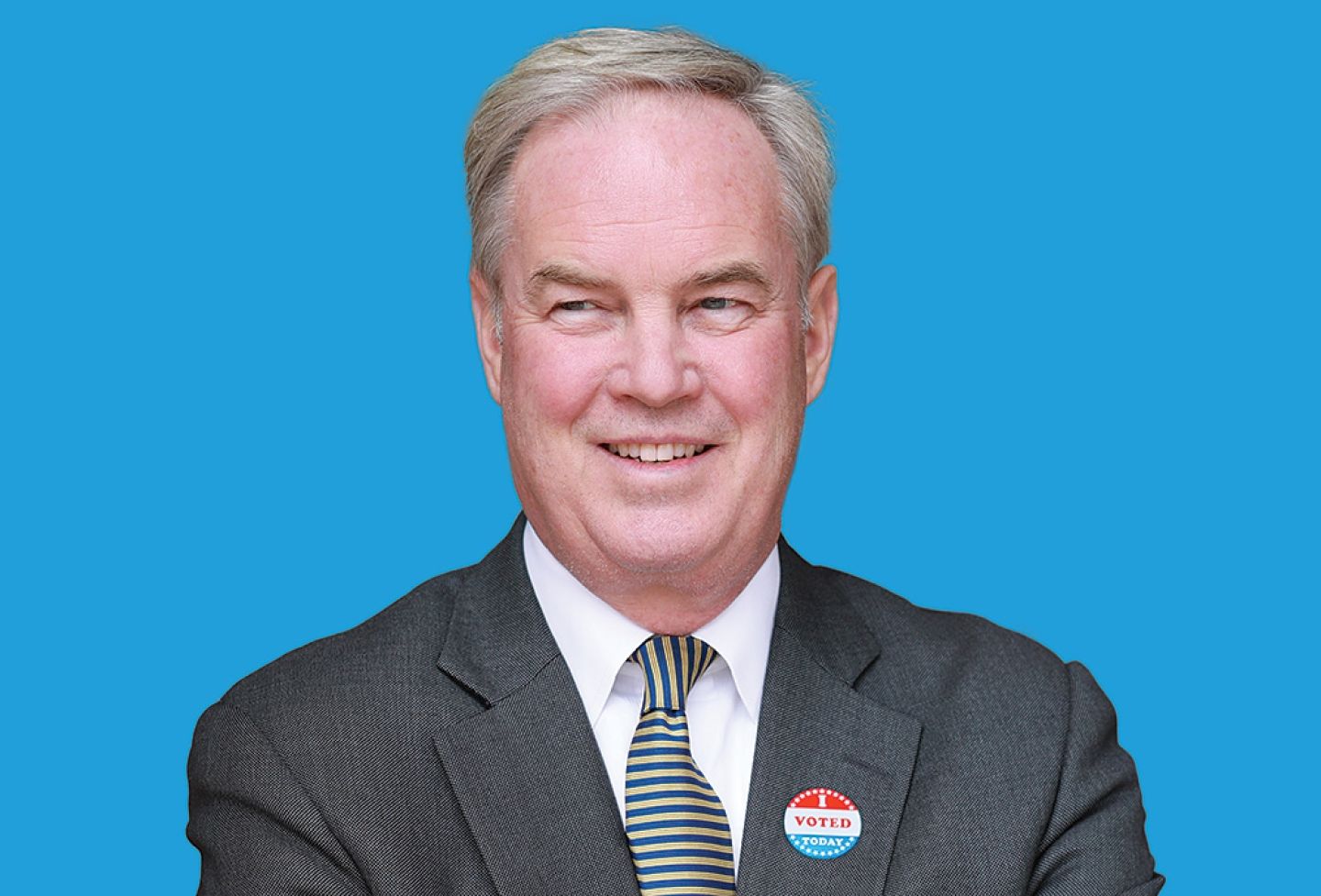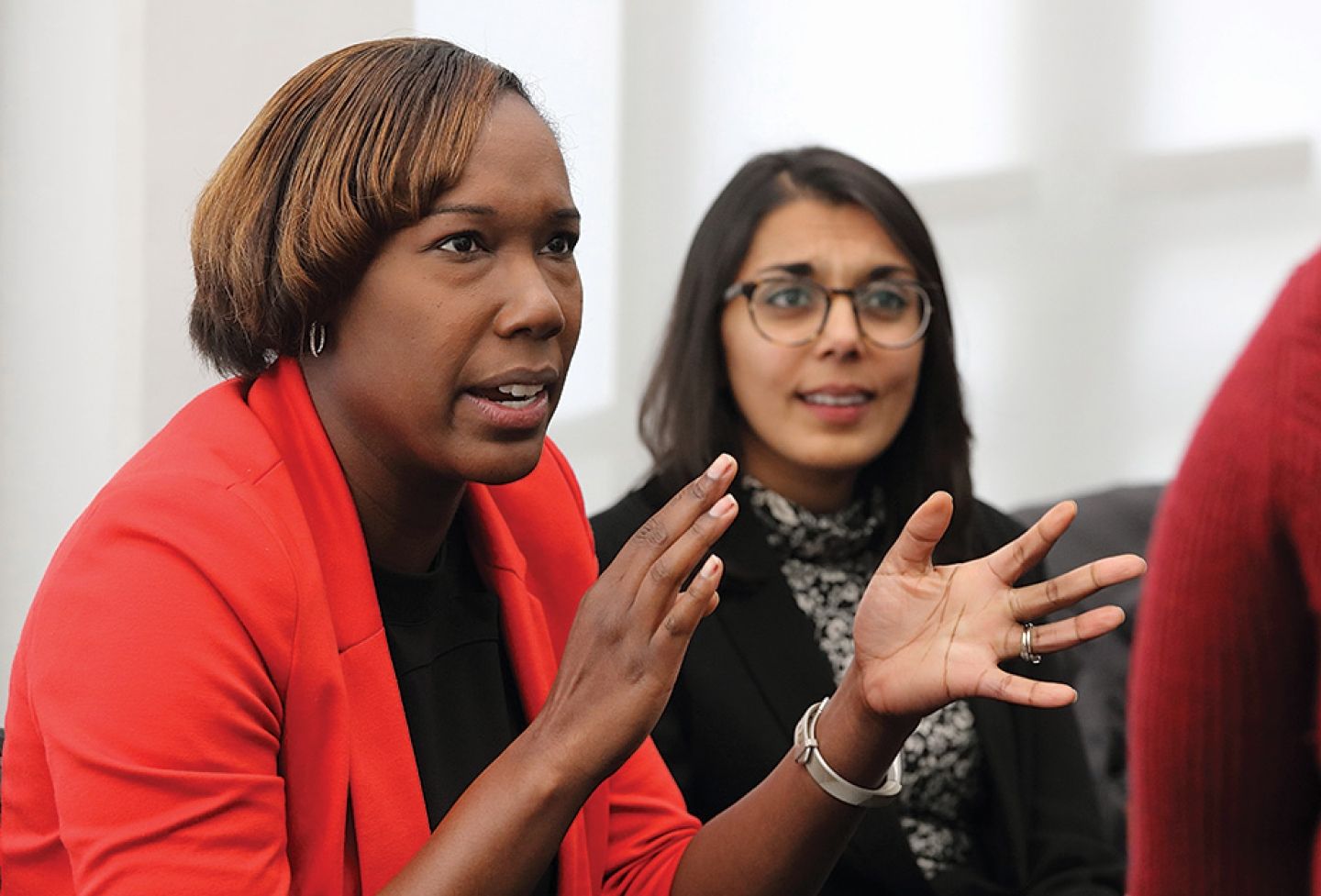Our nation’s recent presidential impeachment wasn’t the first time in modern history that we’ve asked the question: When is a payment a bribe?
Squaring what is bribery — or its sibling, extortion — could be an important part of how democracy moves forward, said Professor Deborah Hellman, an expert on governmental ethics and campaign finance reform.
The federal bribery statute states, “whoever, being a public official or person selected to be a public official, directly or indirectly, corruptly demands, seeks, receives, accepts, or agrees to receive or accept anything of value personally or for any other person or entity, in return for being influenced in the performance of any official act” commits bribery.
Hellman recently outlined her theory in her paper, “A Theory of Bribery,” which won the 2019 Fred Berger Memorial Prize from the American Philosophical Association and was published in the Cardozo Law Review.
“What you might consider the ‘classic’ political bribe is someone who offers a public official money for a vote on a particular bill,” she said. “Money is clearly something of value. A vote on a bill is clearly an official act. The official is motivated to vote on the bill to get the money for personal gain, rather than believing that the vote is for what the constituents want.”

Deborah Hellman
But is the corrupt motivation what makes this bribery? Hellman doesn’t think so.
What of the “practical politician” who argues that he wants the money to improve his chances of winning reelection, which he believes is good for his constituents?
“If this motivation absolves the politician of bribery, then the more arrogant the official, the more free he or she is to accept money or campaign contributions in exchange for official acts,” Hellman said. “That can’t be right.”
Hellman’s theory of bribery differs with conventional thinking in that she doesn’t focus on the subjective motivation of the office holder. Instead, Hellman argues that bribery requires that the things exchanged be of different types.
To help explain her theory, she gave the example of politicians exchanging a vote for a vote. The two things are essentially the same.
“No matter what you think of logrolling, nobody thinks it is bribery,” she said.
Hellman pointed to the case of former Illinois Gov. Rod Blagojevich to support her view. Blagojevich offered to fill Barack Obama’s U.S. Senate vacancy with Valerie Jarrett, an Obama insider who had co-chaired the president’s transition team, in exchange for the governor either receiving a federal appointment or for help landing a private-sector job.
Judge Frank H. Easterbrook of the U.S. Court of Appeals for the Seventh Circuit, writing for the court, held that exchanging an appointment for an appointment does not constitute bribery. The court overturned five of the convictions based on that premise. But Blagojevich’s convictions for attempting to also sell the open seat for money were affirmed. The opinion, like Hellman’s theory, requires that the values exchanged be different in kind.
Another noteworthy recent case demonstrates the consequences of ill-defined laws.
When Virginia Gov. Bob McDonnell appealed his conviction on federal corruption charges, the U.S. Supreme Court unanimously overturned the conviction.
“There, the claim was McDonnell accepted all kinds of goodies — paying for his daughter’s wedding, shopping trips for his wife — in exchange for setting up meeting for this businessman with other government officials and pressuring those officials to take certain actions,” Hellman said.
The court found that while the exchange of these “goodies,” as Hellman puts it, for exerting pressure would constitute bribery, the exchange of goodies for merely setting up a meeting would not, because setting up a meeting is not an “official act” under the federal bribery statute.
“What the opinion left unclear is whether the court’s opinion is based entirely on statutory interpretation, in which case it could be changed by legislative action, or whether the court believes that Congress or a state legislature could not prohibit the sale of meeting time on a schedule of a public official,” she said.
Virginia now has a very restrictive gift law, but Hellman said that states may still want to define the term “official act” to include setting up meetings. Doing so would make it clearer that an official’s time belongs to the public and is not for sale.
Hellman is the David Lurton Massee, Jr., Professor of Law, and the Roy L. and Rosamond Woodruff Morgan Professor of Law. Her scholarship focuses on money and legal rights, and equal protection law.
More Stories on What’s Next for Democracy
- ’20 Questions with Trevor Potter ’82, President of the Campaign Legal Center
- Professor Michael Gilbert Says Study Reveals Impact of Voter ID Laws
- Democracy+UVA: Karsh Center Explores Key Issues, Professors in CLEAR
- Karin Lips ’09 Founded Org Supporting College Women Who Lean Right
- Is It Time to Rethink the ‘Marketplace’ and Our Tolerance for Falsity?
- Katie Townsend ’07 and Jennifer Nelson ’11 Protect Free Speech
- Professor Saikrishna Prakash’s New Book Examines Modern Executive Reach
- U.S. Rep. Sean Patrick Maloney ’92 Reflects on Two Impeachments
- Professor Mila Vesteeg Looks at Executive Overstay Worldwide



